Like a big horror movie: Marco Haller's roller coaster ride back to the peloton
Austrian returns at Tour of Guangxi after six-month lay-off
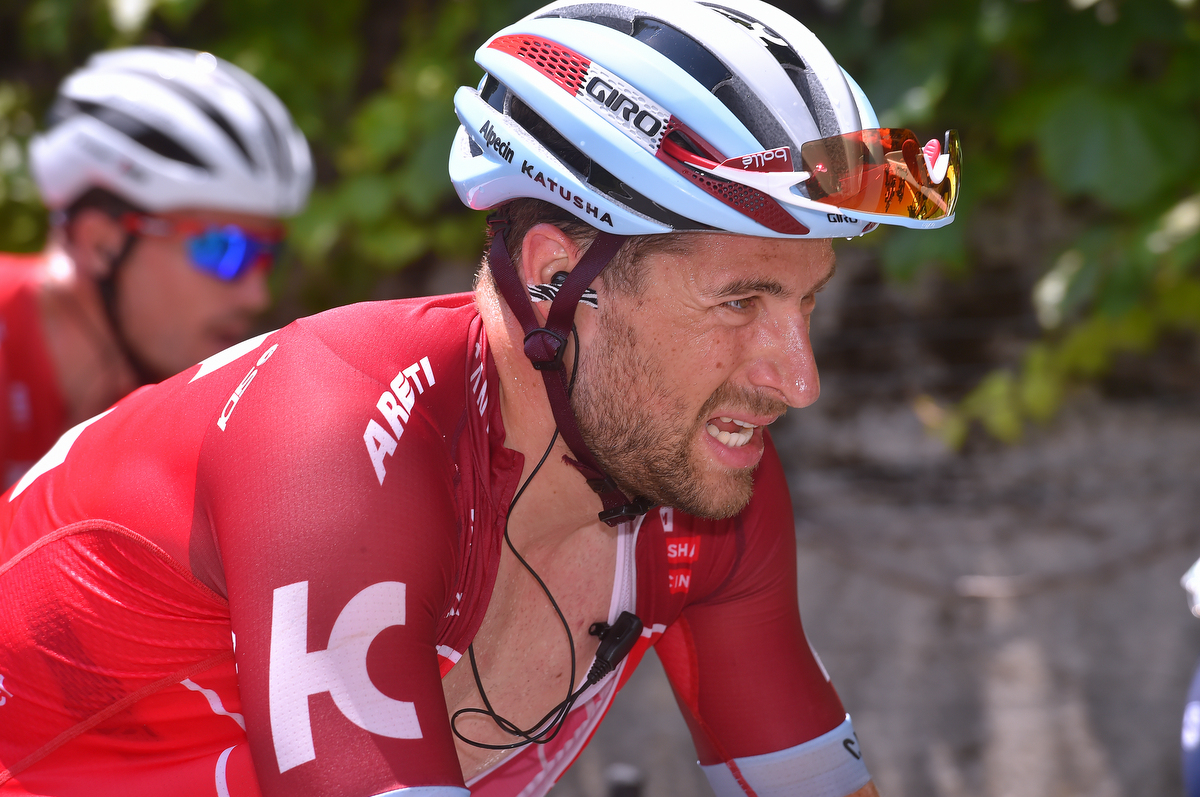
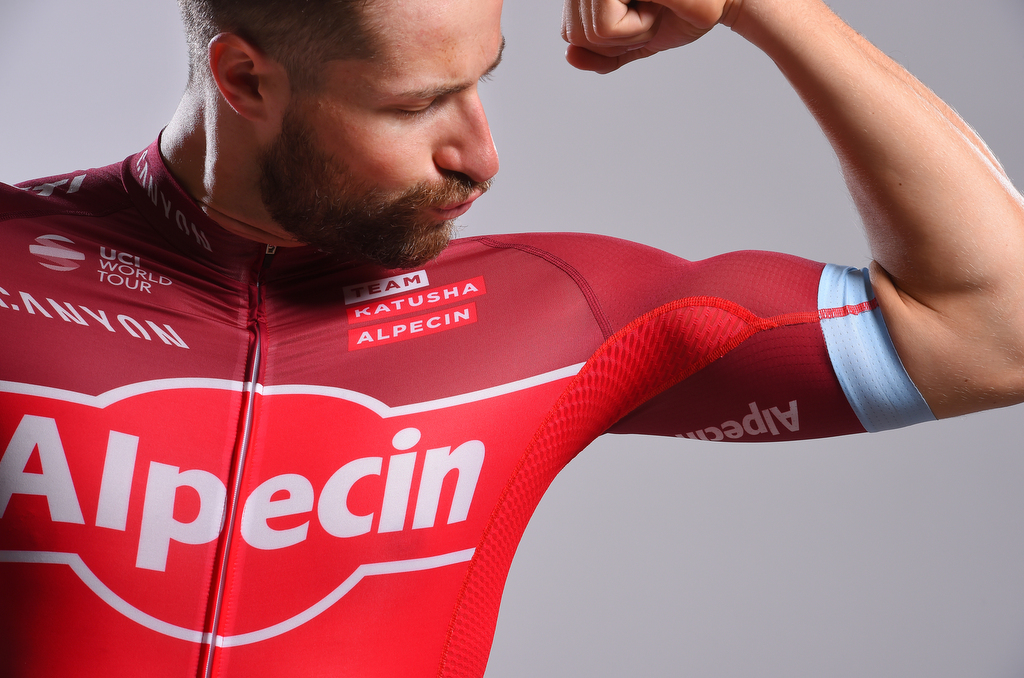
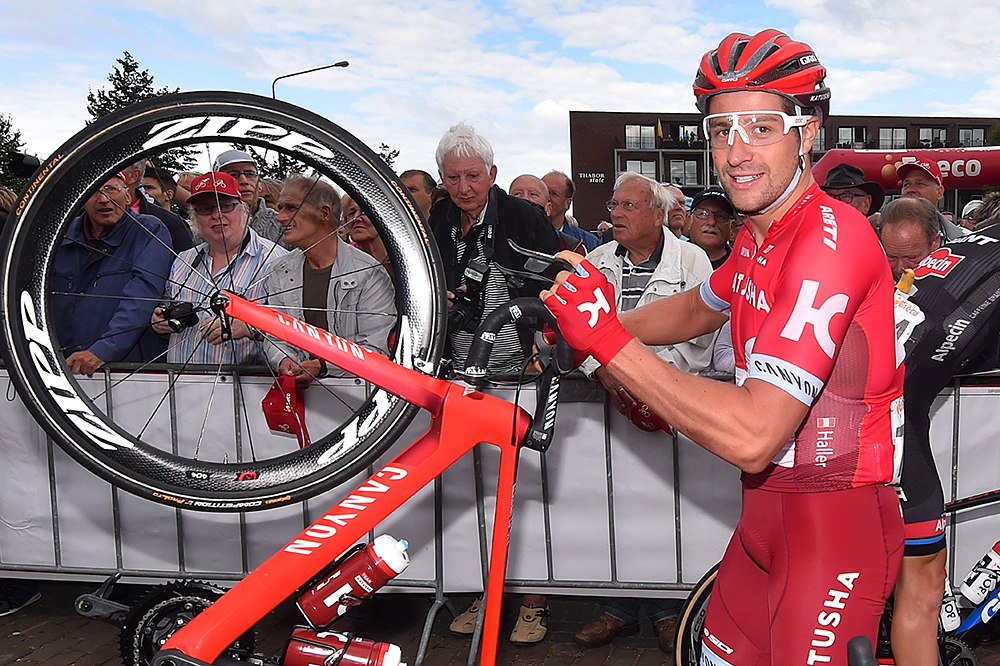
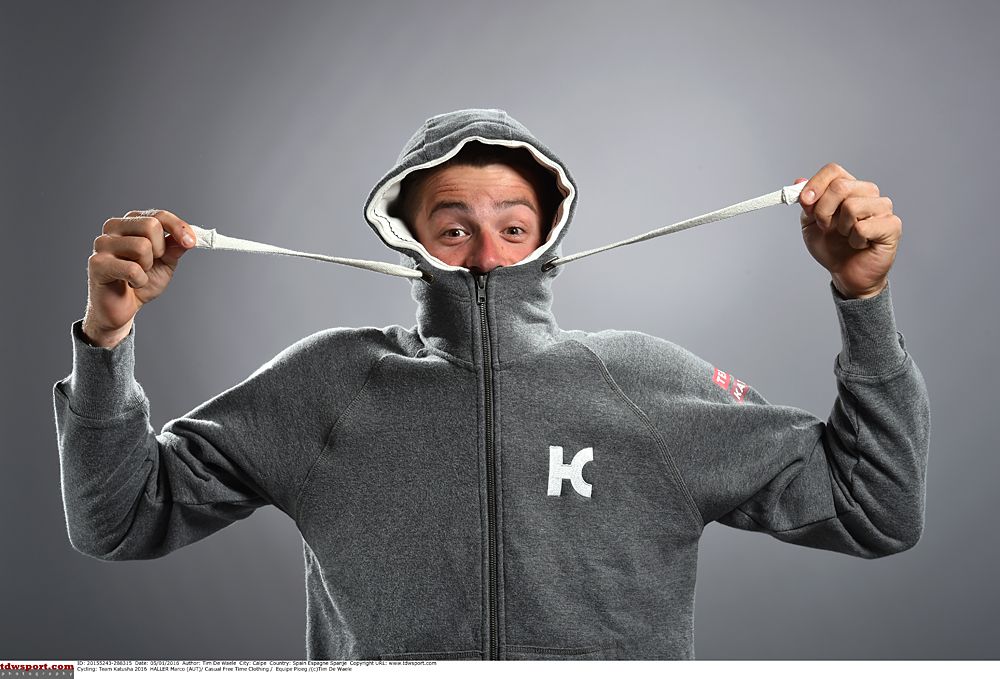
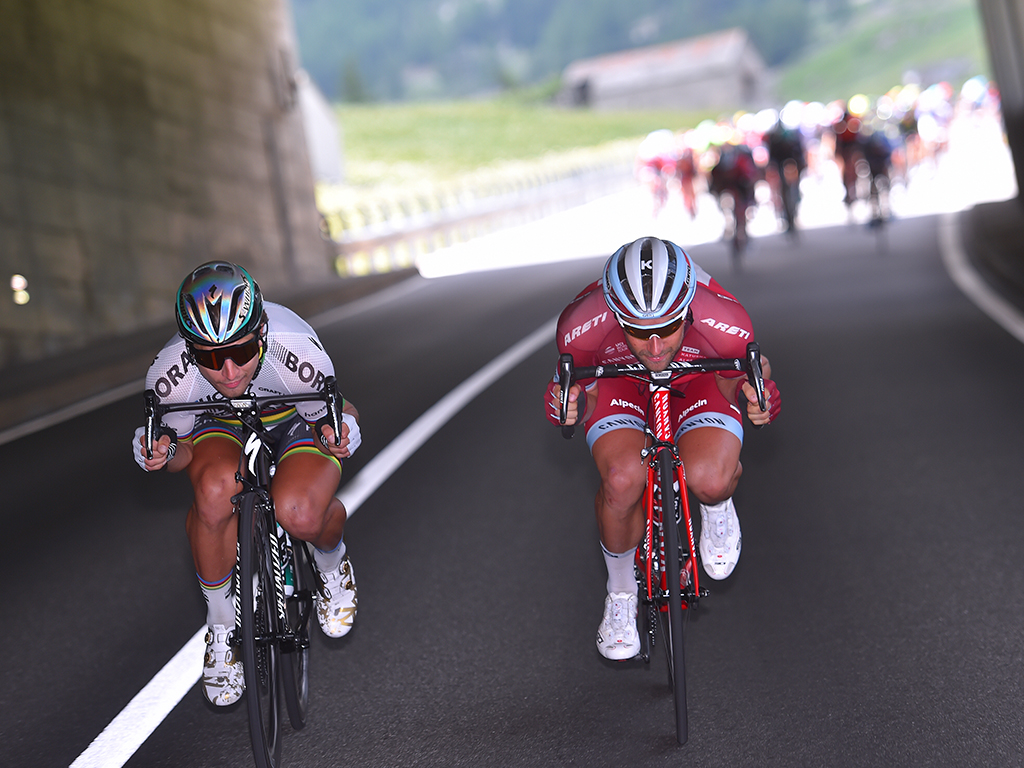
Motivation can be at a premium in the peloton at this late juncture in the season, but Marco Haller (Katusha-Alpecin) was not suffering from any dearth of enthusiasm when he rolled up to sign on for stage 1 of the Tour of Guangxi in Beihai on Tuesday.
For many, the Chinese WorldTour race is simply one more fixture in an already crowded calendar. For Haller, who is making his first competitive outing since the training crash last April that left him with a broken kneecap and placed his career at risk, the week represents something else altogether.
"I was just away for half a year, but I still feel like a kid before the first day at school. I'm pretty nervous but excited," Haller told Cyclingnews before the start on Tuesday.
The Austrian made the day's early break, won the opening intermediate sprint, and finished safely in the main peloton as Dylan Groenewegen (LottoNL-Jumbo) landed stage victory.
From a purely physical point of view, the six-day block of racing here in China will make little material difference to Haller's condition at the start of the 2019 season. From a psychological standpoint, however, this brief re-immersion course in the rough and tumble mode of communication of the peloton is priceless. A long winter has already been shortened considerably.
Haller had initially targeted a return at the Tour of Turkey earlier this month before a bout of appendicitis saw the event scratched from his schedule, but nothing, it seemed, could dissuade him from lining out in Guangxi.
"It's more important for the head. You can train properly at home too and maybe all this travelling isn't ideal for your body and recovery, but I want to come back in the bunch because racing is so different to training," Haller said. "I want to feel the circumstances, the surroundings. I want to feel some elbows - you know what I mean? - because racing is different. I don't want to have to relearn all of this stuff next year."
Get The Leadout Newsletter
The latest race content, interviews, features, reviews and expert buying guides, direct to your inbox!

Haller was struck by a car while training with his friend Bernhard Eisel, and scans at hospital in Villach showed double fractures to his patella and a fracture to his left femur. The 27-year-old's left knee still bears the visible effects of the surgery he underwent in April, but the hefty scar tells only a part of the story of his injury and his arduous comeback.
"It was way worse than just a broken kneecap," Haller said. "With other riders like [Philippe] Gilbert this went way quicker. First of all, it was an open fracture, with 36 stitches so you can imagine how large this wound is. The next thing is the cartilage was out, or part of it, so we had to reshuffle this."
Haller bears his misfortune in good spirit. "I will probably never go hiking again but that's not my job anyway," he said, before laughing that his physiotherapist had suggested cycling to aid his rehabilitation: "I said I'd try that."
Even so, his injuries were severe enough to put his entire career at risk, particularly when the wound became infected following his first two surgeries. All told, he has gone under the knife four times in 2018.
"It was a career-threatening injury, not just because of the injury itself but also mentally," Haller said. "For the first two months, I was basically lying on my back, I couldn't do anything. Then within two and a half weeks, I had to have a second surgery because the first one wasn't 100 per cent, so it was a traumatic time for and my family. I had bacteria in the wound, so I was another month on antibiotics, which ruins your body totally.
"You really have many thoughts in your head in this part. You don't know what's going on and you get the weirdest horror scenarios, like what if they have to take your leg away?"
To compound matters, Eisel was diagnosed with a life-threatening injury of his own when he accompanied Haller to the hospital after the crash. Eisel hadn't raced since crashing out of Tirreno-Adriatico the previous month, but when he told a doctor that he had been suffering from severe headaches, it was suggested that he undergo an assessment himself. A scan uncovered a brain haematoma and Eisel underwent surgery that same week. Remarkably, he returned to racing in July, and is in the Tour of Guangxi peloton alongside Haller.
"As most people know, I'm very close to Bernie and that situation didn't make things easier, because we were thinking what would have happened if he had hit the car instead of me, with a haematoma like this in his head," Haller said. "When I woke up from the surgery, I was texting him and he said, 'Look, I'm in the hospital myself'. It's just like a big horror movie. It was really a crazy, crazy time. I saw Bernie with two kids at home, and it left me rethinking everything. You really think is everything worth it, you know?"

Contract
Haller was only able to return to training on the road in early August, but by that point, he had already agreed a new two-year contract with Katusha-Alpecin. It was a notable vote of confidence for a rider who has been with the team since turning professional in 2012.
"That was a very big sign from Team Katusha-Alpecin to myself," he said. "Obviously, I'm striving to give them something back next year."
The relationship between team management and other members of Katusha-Alpecin's German-speaking cadre has been the focus of considerable scrutiny in 2018, not least as Marcel Kittel struggled to make an impact in his debut season on the team. Haller was part of Kittel's lead-out train before his injury and does not believe the relative lack of success - the German won just twice all season - is indicative of a deeper malaise.
"It would be too easy to say I was missing!" Haller joked. "No, cycling is just such a complex sport and we've seen many times that if one team gets in the winning habit, it gets in the flow and keeps the streak going. At Katusha, we had this in 2015, and this year, it was Quick-Step.
"Marcel already had a bad year some seasons ago, so I see just bad luck and some bad circumstances that it didn't happen for him this year. But I see no reason why he won't be back to winning ways next year. What I always say - to management, sponsors, media - is that you can be 100 per cent sure that the guys who least want to lose are the riders themselves."

Return
It is somewhat auspicious, perhaps, that Haller returns to the peloton in China, given that the biggest victory of his career came in the country when he upset Alessandro Petacchi and Elia Viviani in Changping on the 2012 Tour of Beijing.
"That was a big day for me, so I think it's a good place for a re-start," he agreed.
Haller was altogether closer to home, however, when he realised for certain that he wanted to return to professional cycling. His injuries ruled him out of the World Championships on home roads in Innsbruck, though the mountainous parcours meant that he would likely have been surplus to requirements for the Austrian team in any case.
No matter, Haller opted to enjoy the spectacle a simple fan, camping out on the course among the multitudes and enjoying his anonymity as his contemporaries did battle for the rainbow bands. The experience elicited an almost Pavlovian reaction.
"These past months have been a kind of a roller coaster, with almost a kind of depression but some big emotions on the other side," Haller said.
"Then, I was at the World Championships in Innsbruck with a camper, a barbecue and a can of beer on the roadside. I was just back to the basics, like I was a young kid enjoying cycling, standing on the roadside with nobody noticing me. I just got this feeling, these goose-bumps, and that was the moment where I said, 'fuck, I need to come back to this fascinating and beautiful sport'."

Barry Ryan was Head of Features at Cyclingnews. He has covered professional cycling since 2010, reporting from the Tour de France, Giro d’Italia and events from Argentina to Japan. His writing has appeared in The Independent, Procycling and Cycling Plus. He is the author of The Ascent: Sean Kelly, Stephen Roche and the Rise of Irish Cycling’s Golden Generation, published by Gill Books.